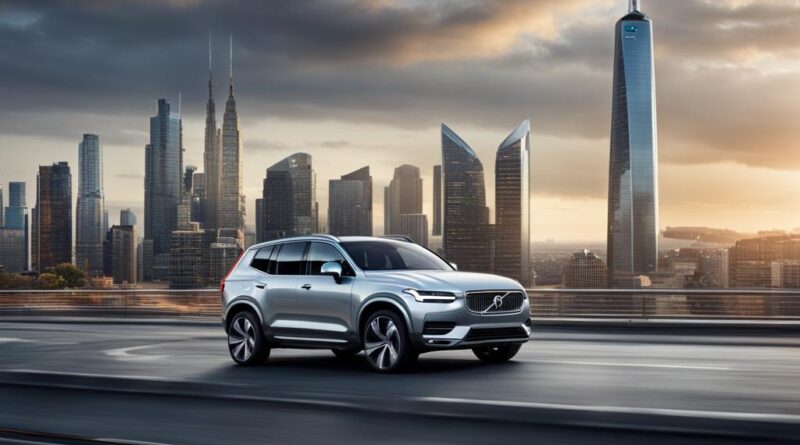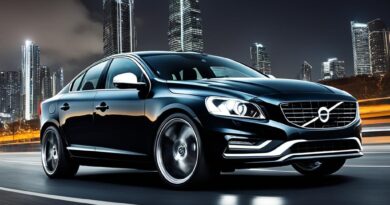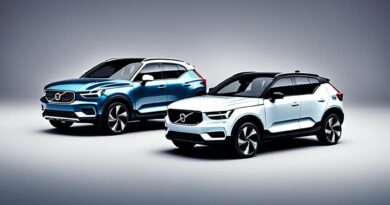Volvo’s Future Strategy: A Plan by Volvo Unveiled
Unveiling its ambitious Volvo’s strategic plan, the automaker is carving a path toward a sustainable future with a comprehensive Volvo’s future vision. Built on a solid foundation of Volvo’s sustainability initiatives, their business plan entails an electrification commitment and a decisive investment in workforce upskilling for global competitiveness – all to drive their global expansion plan forward.
Key Takeaways
- Unveiling of Volvo’s strategic plan for a future of sustainable mobility
- Focus on Volvo’s future vision incorporating global expansion and electrification
- Volvo’s sustainability initiatives driving a commitment to an all-electric lineup by 2030
- Business plan highlighting investments in workforce upskilling and North American restructuring
- Global expansion plan with new talent acquisition and innovation hubs worldwide
Volvo’s Electrification Commitment and CORE+ Initiative
As part of Volvo’s growth strategy and electrification commitment, the automaker has established the CORE+ initiative, which aims for an all-electric future by 2030. At the heart of this strategy lies the EV transition, including efforts to enhance and restructure the workforce for the electric vehicle era, and secure sales and market share.
Transitioning to All-Electric by 2030
Volvo envisions that half of its estimated 1.2 million sales will consist of electric vehicles by 2025, with plans for a complete transition to all-electric sales by 2030. This demonstrates the company’s dedication to promoting sustainable mobility and reducing carbon emissions in line with global conservation initiatives.
Restructuring Efforts in North America
In addition to the company’s commitment to EVs, Volvo is also undergoing significant restructuring across the U.S. and Canada. This includes a reduction of over 10% of white-collar positions with the goal to improve operational efficiency and lower overall costs. The ensuing strategic shift will not only secure the automaker’s competitiveness but also pave the way for the seamless adoption of new technologies in the EV sector.
Investment in Workforce Upskilling for EV Era
As part of the transition to electric vehicles, Volvo is heavily investing in workforce upskilling to match the skills required for the EV era. The company is targeting talent acquisition in areas crucial to electric propulsion technologies, such as battery science and inverter technology. Under the leadership of Volvo CEO Jim Rowan, the emphasis is on adapting the workforce in response to the industry’s transition towards electric mobility.
Volvo’s electrification commitment under the CORE+ strategy is a bold statement of the company’s intent to lead the industry in the shift towards sustainable mobility and an all-electric future.
A Plan by Volvo: The Roadmap for EV Dominance
Driving towards a secure position in the electric vehicle (EV) market, Volvo has meticulously crafted a product roadmap focused on launching a new electric model each year. With the objective of transforming its core models like the S60, S90, XC40, XC60, and XC90 into EVs by 2026, this strategy showcases Volvo’s dedication to electric vehicle innovation. To achieve a fully electric lineup by 2030, the automaker plans to start by introducing at least six new battery electric vehicles through 2026, setting the pace with the reveal of the EX90, expected to arrive in showrooms by early 2024.
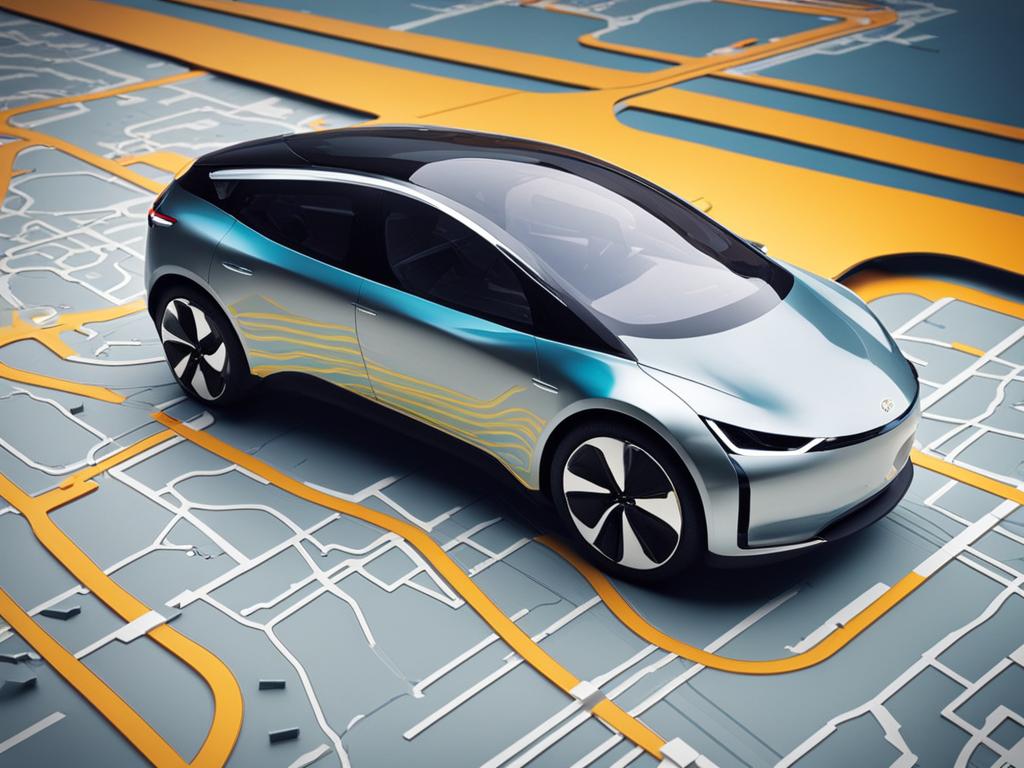
Volvo’s market strategy also includes breaking into the Asian market with an electric minivan, possibly built on Geely’s Zeekr 009 model. This ambitious venture illustrates how the automaker adapts its electric vehicle strategy based on emerging market trends and demands, solidifying its commitment to global expansion and innovation. With new cars positioned across different segments, Volvo aims not only to stay competitive but to lead the industry into the electric era.
By 2026, Volvo plans to revamp its core models into EVs, furthering the company’s vision for a fully electric lineup by 2030.
Volvo’s product roadmap is a clear indication of the automaker’s long-term commitment to electric mobility. Refocusing on an electric future and launching new models annually demonstrates the company’s dedication to attain market dominance in the electric vehicle sector. By highlighting its product roadmap, electric model launches, and targeted market strategies, Volvo demonstrates conviction in its mission to lead the world into a new era of sustainable transportation.
Innovations in Design and Technology
Volvo is committed to delivering innovations in both design and technology, propelling them into the forefront of the all-electric movement. This dedication is evident in the development of their Concept Recharge, strategic partnerships for advanced battery technology, and the introduction of VolvoCars.OS for enhanced software integration.
The Concept Recharge and Future Models
As part of Volvo’s marketing plan, the automaker unveiled the futuristic Concept Recharge, a vehicle that embodies their all-electric aspirations. While certain features of the concept, such as its dramatic suicide doors, may not make it to production, Volvo’s chief technology officer, Henrik Green, assures that future vehicle proportions will be realistic. Furthermore, the company plans to release a new electric model annually, staying true to their commitment to an electric future.
Strategic Partnerships for Advanced Batteries
Volvo recognizes the importance of advanced battery technology in electric vehicles, which is why they have teamed up with Northvolt to develop state-of-the-art batteries. This partnership aims to achieve higher energy densities and seamlessly integrate batteries into vehicle structures, resulting in improved vehicle range and faster charging times.
Introducing VolvoCars.OS for Enhanced Software Integration
Technology plays a crucial role in the success of electric vehicles, and Volvo is making strides by developing their in-house software, VolvoCars.OS. This system enables unsupervised driving on highways and faster roll-out of system updates and allows for software integration of advanced autonomous functions.
VolvoCars.OS will utilize a core computer powered by Nvidia chips to facilitate efficient processing of both core driving tasks and advanced autonomous capabilities. By adopting these innovations, Volvo aims to solidify its reputation for safety and appeal to technology-savvy customers.
Volvo’s Growth Strategy with New EV Lineups
Volvo’s growth strategy is centered on the expansion of its electric vehicle fleet, aiming to lead the electrification wave with a comprehensive product roadmap and ambitious sales targets. By prioritizing eco-friendly models and advanced battery technology, Volvo is well on its way to achieve their envisioned EV expansion.
Expanding the Electric Fleet: From XC40 to the EX90
The Swedish automaker has been working diligently on enhancing its electric lineup, from the XC40 Recharge to the upcoming EX90. The new flagship EV, EX90, is expected to showcase high-end features and cutting-edge technology, reflecting Volvo’s commitment to providing sustainable mobility options for the premium segment. In addition to the EX90, Volvo continues to develop the existing electric variants of the XC40 Recharge and the C40 Recharge, further cementing the brand’s dedication to offering a variety of eco-friendly models.
Target Sales and New Production Facilities
Volvo is setting ambitious sales targets, aiming for 600,000 electric vehicle sales by the middle of the decade, and establishing a battery manufacturing facility in Europe by 2026. By building new production facilities and expanding their market reach, the company is reinforcing its commitment to driving the EV revolution both within Europe and beyond. Partnering with Northvolt, Volvo seeks to develop high energy density batteries with extended ranges of up to 625 miles and significantly improved charging times, giving potential buyers more reasons to adopt their electric vehicles.
The Smallest EV Game Changer: The EX30
Recognizing the importance of affordability, Volvo has also introduced a smaller and more accessible electric vehicle in their lineup – the EX30. Expected to have a starting price of $35,000, the EX30 is set to attract a broader audience and serve as a game-changer in the compact EV market. With superior performance, efficiency, and design, this latest offering demonstrates Volvo’s ability to compete with other automakers while staying true to their core values of safety and sustainability.
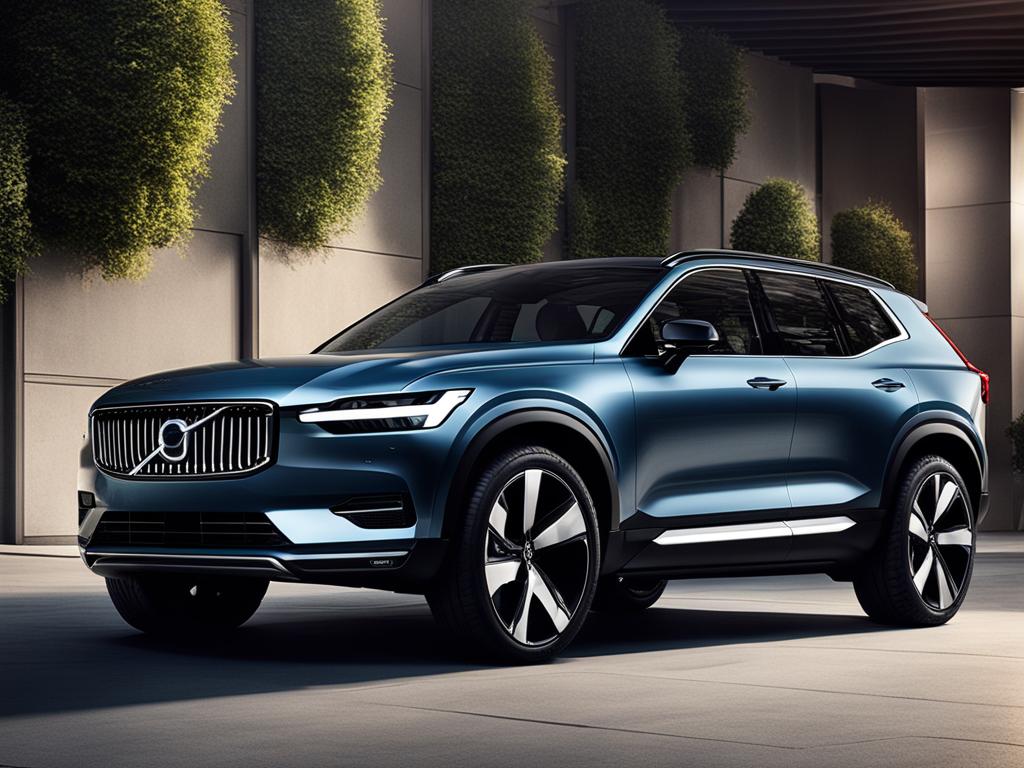
Global Expansion and Talent Acquisition
As the world shifts towards electric vehicles, Volvo’s global expansion plan is positioning the company for success in the international EV marketplace. By placing a strong emphasis on talent acquisition strategy, Volvo is well-equipped to attract and retain exceptional personnel backed by in-depth knowledge of EV technology. With a range of tech hubs worldwide, Volvo seeks to harness the best talent to accelerate its journey towards electric vehicle innovation.

Volvo’s extensive network of tech hubs includes locations in Stockholm, Lund, Bangalore, and Shanghai, with recent additions in Singapore and Krakow. These tech centers are pivotal in developing pioneering technologies that place Volvo at the forefront of the electric vehicle industry. By continuously investing in human resources, Volvo solidifies its commitment to innovation and reinforces its position as a leader in the shift towards sustainable mobility.
The company’s talent acquisition focuses on attracting experts with cutting-edge skills, essential for electric vehicle innovation. This includes experts in battery chemistry, silicon carbide technology, and electric propulsion systems. The fusion of this knowledge will help in the design, development, and production of advanced sustainable solutions and propel Volvo’s EV strategy further.
- Stockholm, Sweden: Home to Volvo Cars Headquarters and R&D center.
- Lund, Sweden: Known for software development and wireless connectivity.
- Bangalore, India: A growing base for R&D and product development.
- Shanghai, China: Regional R&D center focusing on advanced vehicle technologies development.
- Singapore: A newly established tech hub mainly focusing on digital technology and innovation.
- Krakow, Poland: Another new hub, dedicated to software engineering and connectivity solutions.
Volvo’s comprehensive approach to global expansion and talent acquisition ensures the brand has the expertise and innovation to secure a prominent position in the rapidly evolving electric vehicle landscape. This steadfast commitment to progress highlights the company’s dedication to leading the industry in sustainable mobility solutions.
Conclusion
In summary, Volvo’s future vision is a comprehensive strategy that combines ambitious electrification goals with strategic restructuring and investments in innovative technologies and talent. This approach aims to put the company at the forefront of the electric vehicle industry and to strengthen its competitive position in sustainable mobility.
Summarizing Volvo’s Future Vision for an EV-Driven Tomorrow
As part of its strategic plan, Volvo has put the CORE+ initiative in place to drive the company towards an all-electric future by 2030. This includes extensive efforts to transform the current core models into electric vehicles and develop innovative software-driven vehicle technologies. Key to this plan is Volvo’s global expansion and talent acquisition, which will help propel the brand to the forefront of the electric vehicle industry.
Volvo’s Sustainable Initiatives and Their Impact on Global Markets
Volvo’s electric vehicle strategy is closely linked with the brand’s commitment to sustainability. By pursuing an all-electric future and expanding its global presence, Volvo seeks to have a positive impact on global markets and drive the widespread adoption of eco-friendly transport solutions. The company’s focus on creating innovative, sustainable vehicles aligns seamlessly with its longstanding reputation for safety and quality.
The Competitive Edge of Volvo’s EV Offensive
The combination of Volvo’s business plan and strategic investment in the electric vehicle sector is shaping a future where the brand holds a substantial competitive edge. Alongside their bold vision for electrification, Volvo’s dedication to safety and commitment to sustainability create a powerful synergy that will solidify their position as a leader in the world of sustainable mobility.
FAQ
What is Volvo’s strategic plan for its future?
Volvo’s strategic plan, known as CORE+, involves transitioning to an all-electric vehicle portfolio by 2030, restructuring operations in the U.S. and Canada, and investing in workforce upskilling for electric vehicle production. The plan also includes global expansion, new electric vehicle lineups, and innovative technology development.
What is Volvo’s electrification commitment?
Volvo is committed to a complete transition to electric vehicles (EVs) by 2030, with EVs forming half of its projected 1.2 million sales by 2025. This commitment involves restructuring efforts in North America and investment in workforce upskilling to align with the demands of the EV era.
What is Volvo’s product roadmap for electric vehicles?
Volvo’s product roadmap includes launching a new electric model annually, with plans to revamp its core models into EVs by 2026. The lineup will include the S60, S90, XC40, XC60, and XC90, along with at least six new battery electric vehicles such as the flagship EX90 and the more affordable EX30.
How is Volvo investing in design and technology for electric vehicles?
Volvo is investing in innovative design through its Concept Recharge, which projects future all-electric aspirations. The company is partnering with Northvolt for advanced battery development, and introducing VolvoCars.OS for enhanced software integration. A core computer with Nvidia chips will enable efficient processing and advanced autonomous functions.
What is Volvo’s growth strategy for its electric vehicle lineup?
Volvo focuses on expanding its electric vehicle fleet, targeting 600,000 sales by mid-decade and establishing a battery manufacturing facility in Europe by 2026. With the introduction of the EX90 and the more accessible EX30, Volvo aims to provide consumers with a wide range of electric vehicle options for various budgets and needs.
What is the plan for Volvo’s global expansion and talent acquisition?
Volvo is prioritizing global expansion and talent acquisition to succeed in the international EV marketplace. With tech hubs located in key regions globally, Volvo seeks to acquire top talent worldwide with cutting-edge skills in EV technology to contribute to the success of their electrification journey.

